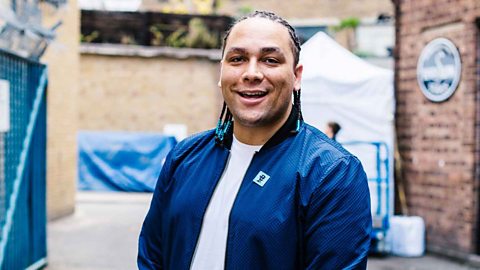This article was first published in October 2021.
Bullying is never OK. Nobody deserves to be bullied and if itās happening to you, you should speak about it to an adult you trust. But what if you think you might be bullying people? Bullying is a behaviour that hurts those around us, but just like any behaviour, it can be changed. We asked PSHE specialist Kate Daniels to offer some advice on what to do if you think your words or actions might be hurting someone. Check out her tips below.


1. Become aware
We might think we just like a laugh, enjoy pranks, or maybe some people just irritate us, but whatever the reason, bullying is never OK. It is often the case that we do have a sense of unease, sometimes called āa gut feelingā, when we do something wrong. If we use these feelings to recognise when we've said or done mean things to others then we can get honest with ourselves and acknowledge these. Finding this self-awareness is a really positive first step to changing our bullying behaviour.


2. Look for warning signs
If we look for them, there are many signs that show how people feel, and noticing these can be really helpful in working out if our words or actions are negatively impacting others. Itās good to remember that people express themselves differently ā both verbally and non-verbally ā so even if someone is quiet, their body language may still let us know how theyāre feeling. Peopleās reactions to our online posts and comments can also give us a clue to how our behavior is impacting others. So, letās think back, listen, read and notice actions and comments to see if we can spot any signs.


3. Get reflective
Reflecting back on our own experiences can help us to understand a bit more about why we may be bullying others. Perhaps we could think about when it started, for example, and see if we can notice why this might have been the case? If this brings up worrying or distressing feelings for us, however, then itās best not to do this alone. Itās always really important to get support if we are struggling to cope with any aspect of our lives ā both those that are currently happening and those that have happened ā and there are lots of professional people out there who can help us. Check out the If you need support section at the bottom of this page for some suggestions and links that may help you.


4. Talk to a trusted adult
Talking to a trusted, supportive adult about our behaviour will really help. Maybe this could be a member of the family or a teacher? Teachers may not be impressed with the hurt we have caused someone, but they are likely to admire our honesty and want to help us to put things right and get us any support we need.


Everyone makes mistakes, but it's what we do once we realise them that defines us. Our past, or even our present behaviour, doesnāt have to determine who we are or who we will become, but we can begin the process right now and decide how we are going to act one day at a time. If we can get honest with ourselves, have the desire to change and ask for help, we might just amaze ourselves. There are so many people out there ready to help us, all we have to do is ask.


If you need support
You should always tell someone about the things youāre worried about. You can tell a friend, parent, guardian, teacher, or another trusted adult. If you're struggling with your mental health, going to your GP can be a good place to start to find help. Your GP can let you know what support is available to you, suggest different types of treatment and offer regular check-ups to see how youāre doing.
If youāre in need of in-the-moment support you can contact , where you can speak to a counsellor. Their lines are open 24 hours a day, 7 days a week.
There are more links to helpful organisations on “óĻó“«Ć½ Action Line.

Harnaam Kaur on how building a relationship with herself was the key to beating her bullies.

How to deal with cyber-bullying
Online bullying can be extremely distressing. Check out these tips for how to deal with cyber-bullies.

How to deal with racist bullying at school
Alex Holmes talks about his experiences of being racially bullied in school and what you can do if you are experiencing racism.
